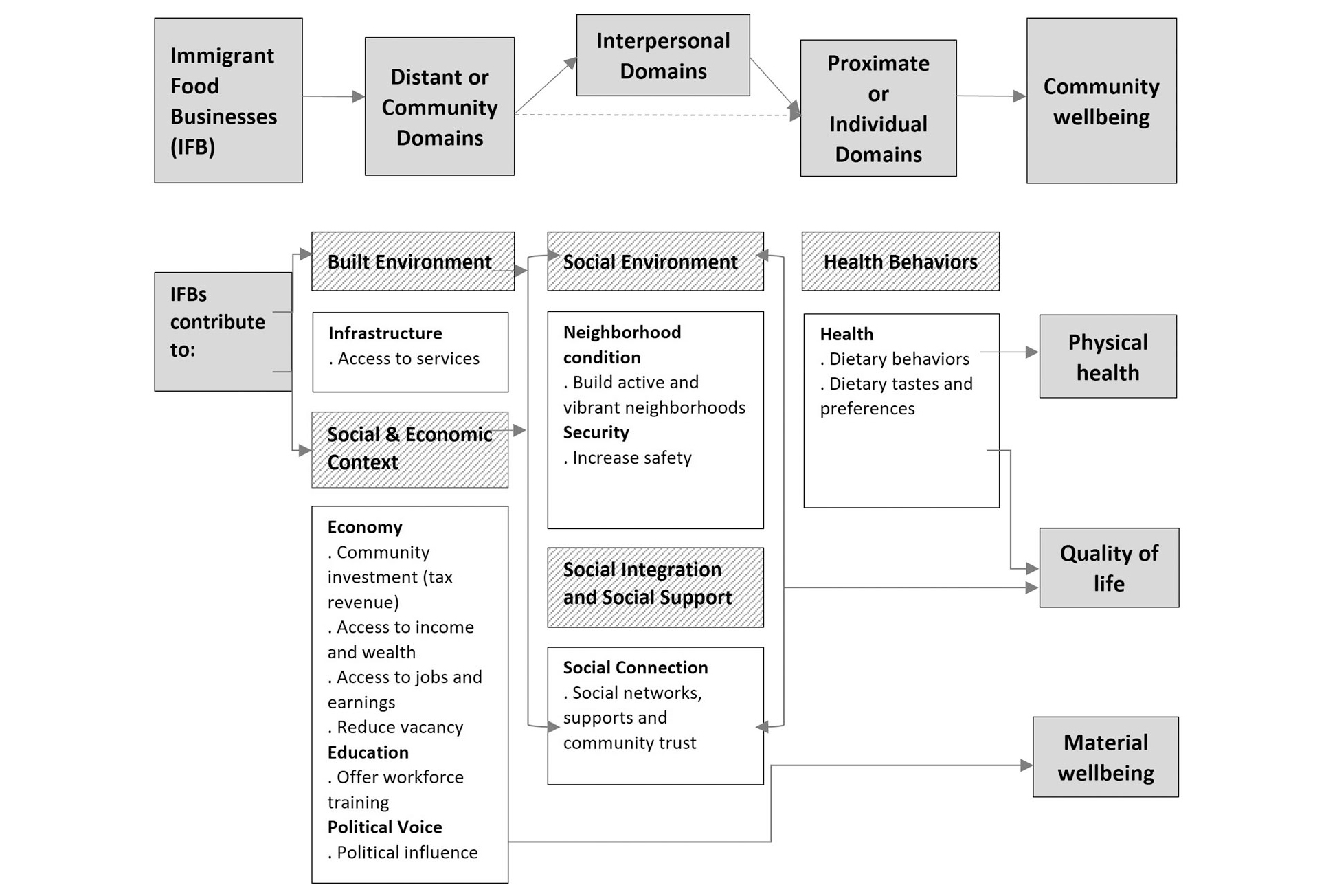Uncovering JAPA
Understanding and Protecting the Benefits of Immigrant Food Businesses

It's no secret that the suburbs have ethnically and economically diversified in the decades since they came to dominate residential development in the United States. Ethnic enclaves that were traditionally situated in the urban core are now more likely to be in the suburbs, with a majority of new immigrants settling in suburban areas. The food system that has accompanied this shift has largely and healthily met the nutritional needs of residents, but efforts by so-called "food entrepreneurs" are often unrecognized or undervalued by conventional approaches to economic and food environment planning.
Immigrant Markets Enrich Suburban Communities' Health
In "Unplanned Food Access: Contribution of Immigrant Food Entrepreneurs to Community Wellbeing in a Suburban Township" (Journal of the American Planning Association, Vol. 89, No. 2), Maryam Khojasteh makes a case for supporting immigrant food entrepreneurs and markets.
Drawing on fieldwork in the working-class inner-ring Philadelphia suburb of Upper Darby, she argues that smaller-scale, ethnic food businesses — along with big-box supermarkets — are providing residents with healthy, familiar food. They are also contributing to broader community health and well-being, not to mention economic revitalization.
Khojasteh draws on several sources of information to make this argument. First is a survey of 115 shoppers, to understand which, where, and how Upper Darby residents shop for food. Compared to a national sample, locals were less likely to shop at supermarkets and much more likely to shop at "other retailers." For foreign-born residents, the food baskets themselves were strikingly diverse (naming a total of 213 different food items) and richer in grains and produce compared to U.S.-born shoppers. For all respondents, shopping at a more diverse set of stores was associated with healthier food categories.

Figure 1. Two graphs illustrate how immigrant food businesses can contribute to different types of well-being at both the community and individual levels and through different domains.
Ethnic Food Stores are Vital Community Assets
To supplement the survey findings, Khojasteh also conducted interviews and historical and business research around three full-service ethnic food stores (African, Vietnamese, and Indian) to provide a more "granular look into what food access in diverse communities may look like."
Here, the upstream benefits of Upper Darby's rich, multi-ethnic food system become clear: Business data shows the immigrant food businesses reduced the municipality's vacancy rate, and the frequent transfer of some businesses "provided new workers opportunities to learn the business and access financial means to ultimately start their businesses."
Instead of predominant development practices that might bring a national supermarket to a community, Khojasteh argues the immigrant food businesses in Upper Darby help ensure residents benefit from and participate in investment, getting at the root causes of health inequity.
Local food businesses are one example of how the organic, unplanned aspects of an area are often least in need of overt economic development intervention, which is often structured around creating new things instead of identifying and preserving existing, functioning community assets.
Similarly, Khojasteh lays out evidence and recommendations that focus on understanding and casting existing food markets as community assets that maintain cultural, physical, and economic well-being. Though it may be frustrating to well-intentioned, "big plan"-oriented planners, often the best moves will focus on supporting smaller-scale systems that are already well functioning.
Top image: Getty Images E+: grandriver


